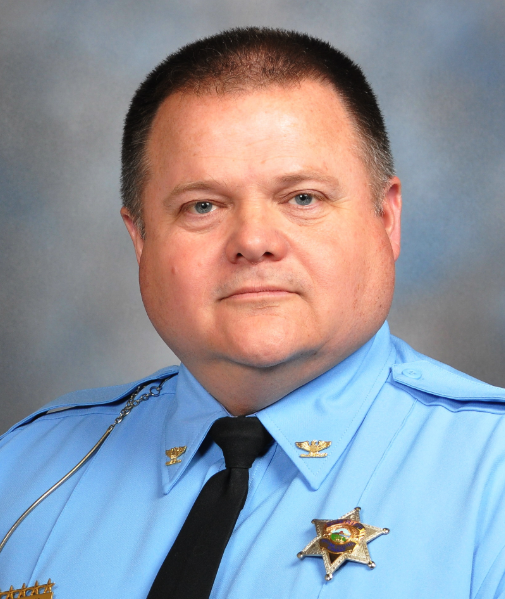By LESLIE EIKLEBERRY
Salina Post
The recent deaths of George Floyd, Breonna Taylor, Rayshard Brooks, and others and the subsequent protests, vigils, and marches have put law enforcement policies and personnel squarely in the spotlight.
On Tuesday, President Donald Trump signed an Executive Order on Safe Policing for Safe Communities and members of Congress are developing bills to deal with safe policing issues.
We decided to take a look at what policies local law enforcement agencies have.
Both the Saline County Sheriff's Office and the Salina Police Department have comprehensive use of force policies. Both agencies' policies prohibit choke holds, but with specific exceptions.

"Our policy (General Order 02102) does specifically prohibit choke holds unless it is 'objectively reasonable to prevent imminent bodily harm to the officer or another person(s), prevent escape, or, as objectively reasonable,'" Salina Police Chief Brad Nelson told Salina Post.
The Salina Police Department's use of force policy can be seen here.

"We have a comprehensive use of force policy that includes the following: 'Choke holds are prohibited unless deadly force is authorized,'" Soldan said.
Nonetheless, both Soldan and Nelson have, on multiple occasions, reacted to the death of George Floyd as many Americans have.
"I was shocked and angered by the treatment of Mr. Floyd. I was also disappointed by the lack intervention from the other officers at the scene. Officers have the responsibility to keep everyone involved safe, including suspects," Soldan told Salina Post shortly after Floyd's death. "This type of thing cannot be tolerated by law enforcement leaders and I fully support their termination and any criminal charges they may face."
"There was absolutely no reasonable excuse for what happened in Minneapolis to Mr. Floyd. None," Nelson noted.
One of the provisions in the president's executive order is certification and credentialing.
"Officers in certified positions are required by Kansas law to complete certification at the Kansas Law Enforcement Training Center or other state authorized training centers within their first year of employment," Soldan explained.
"Certified officers require 40 hours of annual continuing education and those records are kept by the Kansas Commission on Police Officers’ Standards and Training (KS-CPOST)," Soldan continued. "There are no state certification requirements for corrections staff, but it is the policy of the sheriff’s office to send all new corrections officers to a 40-hour Basic Corrections Academy."
Nelson pointed out that the Salina Police Department is "one of only 10 agencies in Kansas that are accredited by the Commission on Accreditation for Law Enforcement Agencies (CALEA) and have been so since 1996."
Find out more about CALEA here: www.calea.org/
"My opinion is that CALEA not only assures that agencies have the 'Best Practice' policy and procedures in place but more importantly, they abide by them," Nelson said. "I am by no means inferring that our polices cannot be improved. They always have been and will continue to be a work in progress reflecting what our community expects of their police department."
Another component of the president's executive order was the establishment by the attorney general of a national database to track "instances of excessive use of force related to law enforcement matters." Information in the database is to be shared "between and among federal, state, local, tribal, and territorial law enforcement agencies."
According to the executive order, the database would "include a mechanism to track, as permissible, terminations or de-certifications of law enforcement officers, criminal convictions of law enforcement officers for on-duty conduct, and civil judgments against law enforcement officers for improper use of force." Additionally, the database would include information about law enforcement personnel who resign or retire while under active investigation related to the use of force.
"Information concerning the circumstances when a law enforcement officer leaves a certified position in Kansas is tracked by KS-CPOST and available to inquiring agencies. I think it would be of great benefit to have a national database of that information available to potential law enforcement employers," Soldan said.
"I would support such a database as long as a thorough investigation occurred which deemed the force used by the officer was, in fact, excessive. In other words, I would not support in any manner a database that contained unsubstantiated allegations," Nelson said. "It would definitely assist in our hiring decisions if there was such a database."
The president's executive order also contains a provision to train law enforcement personnel "with respect to encounters with individuals suffering from impaired mental health, homelessness, and addiction; to increase the capacity of social workers working directly with law enforcement agencies; and to provide guidance regarding the development and implementation of co-responder programs, which involve social workers or other mental health professionals working alongside law enforcement officers so that they arrive and address situations together."
Both Soldan and Nelson said that their personnel deal with such persons on a daily basis. For sheriff's office personnel, those encounters occur both in the Saline County Jail and on patrol, Soldan said.
"Nearly one-third of the sheriff’s office have completed 40 hours of Crisis Intervention Team (CIT) training and others have received shorter training in Mental Health First Aid," Soldan said.
Nelson said he introduced CIT to the Salina Police Department in 2014.
"This model develops partnerships between law enforcement, mental health providers, and healthcare professionals to more effectively respond to mental health crises and substance abuse issues. The CIT program also stresses using interagency collaboration to help individuals in crisis enter into treatment rather than utilize more costly and less effective emergency room visits or serve jail time," Nelson explained.
"My goal is to have the entire Patrol Division attend this training," Nelson continued. "It is a 40-hour course so it will take some time to cycle everyone through it. Presently, 19 officers have attended this training."
Nelson said that the police department and sheriff's office have hosted SIT training in Salina.
Soldan said that next week, the sheriff's office is the host agency for an eight hour "Recognizing and Responding to Persons with Mental Illness" training.
"We work with Central Kansas Mental Health on a routine basis and recognize the importance of helping people in crisis," Soldan added.
Nelson said that 21 patrol officers have also attended the eight-hour Mental Health First Aid course.





